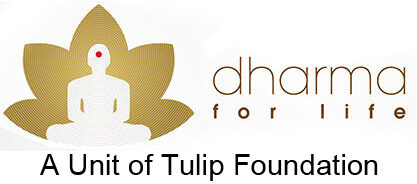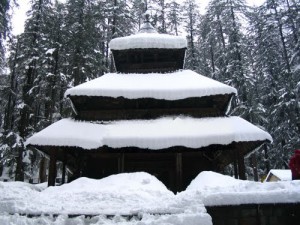When we think about the word-rakshas, an image of evil looking devil comes into our mind, with long teeth and sharp horns. Let me tell you it is a wrong perception. The word, Rakshas is originated from the sanskrit word, ‘raksh’ which means ‘to protect’. It means rakshas are those who protect, this protection can be meant for their people also or for their beloved surroundings and nature as well, as depicted in this book.
Hidimba is a rakshasi princess, who lost her parents at a tender age. Her brother, Hidimb is a cruel and selfish being, who uses people and animals for his illegal demands. Hidimba is very intelligent, innocent and beautiful. As she grows up, Hidimb uses her beauty to trap strangers, to get them to him so that he can eat them. Hidimba has no choice, except to follow his order.
One day, when Bheem, Kunti and the rest of the Pandavas, are on a run from the Lakshagrah, (which too has a political story) they entered into their (Hidimba’s) land. While Kunti and Bheem’s brothers are resting, Bheem is guarding them. Hidimba came there to trap Bheem, but seeing his charm and personality, she instantly falls in love with him. Not only that, she even comes to him and openly and honestly expresses her love for him and tells her everything about her brother. Soon, her brother comes there and overhears Hidimba and steps forward to kill her, prior to Bheem. But Bheem is unable to see his disrespect towards her sister and he starts a fight with him and kills him.
In the mean time, Hidimba goes to Kunti and the rest of her sons and tells them everything. She even asks Kunti, if she can marry Bheem? Hidimba says, now I can’t imagine someone else as my husband.
Now here comes the cleverness. Kunti, instantly takes Yudhhishthira aside and takes some decisions. She says we are on a run from the Kauravas, sooner or later they will find us. Bheem’s wedding with Hidimba not only gives us a safer place to reside but their protection as well. In the mean time we would get enough time to plan for our future. In addition, we can take some promises from her which would act in our favour in the future, as sooner or later war is inevitable. And at that time, their child can be of some use to us.
They take advantage of her love and innocence. Kunti says,”I give permission for yours and Bheem’s marriage but as soon as you will give birth to the child of this communion, you would have to free all of us from any kind of bondage or responsibility. Without claiming any right for yourself or your child”.
That parentless girl, Hidimba, is so madly in love with Bheem that she instantly gives permission for whatever they ask. Because she doesn’t have that farsightedness of a cunning politician. But as soon as she realises that she has bound herself with an unfair deal, she feels helpless. But there is no way out because a deal is a deal.
Hidimba lives the best part of her life with Bheem, his love and their togetherness. She even proves herself an ideal daughter-in-law and sister-in-law. Soon, she conceives and gives birth to a healthy son, whom they name, ‘Ghatotkach’. As soon as the baby grows a bit, comes the time for their departure. Kunti and Pandavas leave a helpless mother and her infant child, as promised. She could do nothing but to cry her heart out.
But soon she tries to recover from her woes and proves herself a dedicated and dignified queen and a good mother. The time keeps passing… She makes her son ideal in every respect. All this while Kunti, Bheem and the rest of the Pandavas never ask about her or her son, not even once. On the contrary Hidimba always keeps a track of their well being, through her sources.
Now, Ghatotkach is the king of their land, he also has his family. His son is also married. After fulfilling her responsibilities as a queen and a mother, now Hidimba has taken sanyas and she lives in a cave, in memories of Bheem and his love. The people of her kingdom calls her, ‘Rajmata’ with affection and respect.
Here Shri Krishna is planning, since many years, for the Mahabharata Yuddha and as destined, the time for the inevitable war arrives. As soon as Ghatotkach hears the news of war, he (and his son Barbareek) takes his mother’s permission to join his father and the rest of his family, at this time of need. Being a great warrior, he spreads his fear in the war field.
But no great warrior can be strong enough to decode the conspiracy against him.
Soon, Hidimba hears the news of the death of her grandson along with her beloved son, Ghatotkach. The son, for whom she had lived, had given him the best of everything, to make him a worthy king; is dead now. That too for a family, who has never asked about his well being.
Most shockingly, Hidimba’s sources tell her that Ghatotkacha’s death was planned and the sacrifice of his life only, has stopped this great war.
The truth goes like this: when all the weapons were used in the war and thousands of people, of both sides, got killed. Karn was about to use a very heavy weapon. And there were only two people strong enough to handle the strength of that arm; they were Arjuna and Ghatotkacha. And there were equal chances that the one who would face Karn this time, would lose his life.
Shri Krishna holds a meeting with Yuddhishthira and tells him that it would not be wise to send Arjuna against Karn because Arjuna’s life is more precious to be saved for the future.
Surprisingly, Dharmraj Yuddhishthira keeps a mum at this. Krishna challenges Ghatotkacha to show his prowess against Karn and as expected that weapon of Karn kills Ghatotkacha.
Now, the great war of Mahabharata ends because after that arm now the Kauravas are left with no power. They lost in this battle.
The Pandavas are the winners, with the brain of Shri Krishna. Shri Krishna dances and celebrates near the dead body of Ghatotkacha, that the great war has ended and they have won.
Just imagine the state of mind of a mother like Hidimba at this time.
She is mad with anger but whom should she blame now? And with whom should she share her unbearable pain?
It has been described very realistically in the book.
So, that was the story of Hidimba, Devi Hidimba, Goddess Hidimba, as read in the book. An eye opener for all of us.
Manali’s royal family still calls Hidimba as Dadi Maa and worships her prior any work.
I bow down to that feminine energy of the cosmos, who stood for herself, her people and her family.
Thank you for your precious time friends.
Have a thoughtful day!!!
Medhavi
Skip to content
Skip to sidebar
Skip to footer

